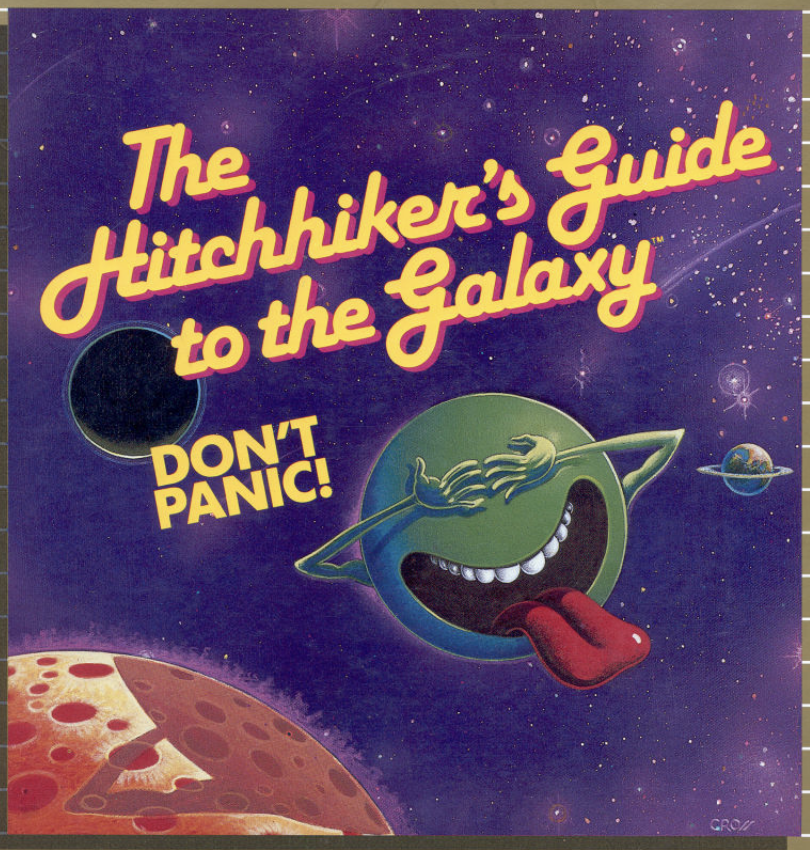Interactive Video Game Fiction Is Making A Comeback
By Alex J. Coyne © Great Bridge Links
With so many of us spending so much time at home, interactive fiction is back in the spotlight. These games, which originated in the 1980s, are mostly text-based, with user input required for actions like Look, Open, or Get. If you’ve never played one, they can be compared to device-aided Choose Your Own Adventure novels.
Zork (1980) was one of the first commercially available interactive fiction games. In those days, games came on a cassette tape and were inserted into a tape drive connected to the computer. As computers didn’t have any kind of storage, your progress would be recorded right on the tape. Swapping tapes was not unusual – swap in the program tape, then swap in a storage tape, then swap in the program tape again.
Looking for modern interactive fiction adventures – or a throwback to your old favorites? Here are 9 great classics to play right now.
The Hitchiker’s Guide to the Galaxy
What began as a comedy science fiction series on BBC Radio in 1978, then grew into an enormously popular franchise including a series of books and movies, the Hitchiker’s Guide to the Galaxy by Douglas Adams is unique – hilarious, creative, and wonderful (can you tell we are fans?). And almost best of all, the story was converted into what was then called an Adventure Game in 1984. “I remember sitting in front of a black screen with nothing but green text,” Gifts for Card Players owner Jude Goodwin tells us. “And furiously typing command after command trying to figure out the next step. I was often surrounded by friends shouting encouragement and suggestions. And of course …. swear words. Some of the game’s replies were hilarious!”
You can enjoy this game today, cleverly framed in a Browser-based graphic (I don’t think they should have put the image there, it makes the game much easier) and read all about the story, the radio program, and even the movie at the link below. And whether or not you’re able to get through the game, the best advice of all is : DON’T PANIC.
https://www.bbc.co.uk/programmes/articles/1g84m0sXpnNCv84GpN2PLZG/the-game-30th-anniversary-edition
Black Mirror: Bandersnatch
Black Mirror: Bandersnatch is a modern take on interactive fiction, available on Netflix. Make choices for the story’s protagonist and watch his decline into insanity trying to develop a video game called Bandersnatch.
It’s full of easter eggs that gamers, board game fans, and programmers can appreciate. Be warned, it’s very far away from PG – and gets pretty dark. It’s also worthwhile.
Bandersnatch is a fascinating experiment in choices.
Have fun. You’ll want to do it again.
80 Days (2014)
https://inklestudios.com/80days
The interactive fiction 80 Days was created in 2014.
It’s meant to be an interactive version of the popular Jules Verne novel. It’s also a clear sign that the popularity of interactive fiction is on the increase.
Would you have remembered the tales of Shakespeare better if they had been introduced to you as interactive fiction instead?
Yes, this is difficult if you think you know the story.
Cypher (2012)
https://cabrerabrothers.com/
Cypher is an excellent game to get into for fans of anything cyperpunk or dystopian. If you’ve enjoyed games like Deus Ex or System Shock, you’ll get into the universe immediately.
It’s elaborate – and very.
Façade (2005)
https://playablstudios.com/facade
Façade is a visual interactive fiction story that incorporates a smart artificial intelligence system. Choose from several answers or actions to drive the story.
Character movement and voice adds to the ‘live environment’ feel, and the game never plays the same way twice.
No, I’ve never played it to completion.
AI Dungeon
https://play.aidungeon.io
AI Dungeon is another example of what happens when artificial intelligence meets interactive fiction.
It’s a tribute to earlier dungeon games from the DOS-era of programming, but with a modern take. The universe generates itself, and it’s literally considered endless.
The Hobbit (1982)
The Hobbit was released by Beam Software in 1982.
It’s notable for sticking to the Tolkien mythology carefully, while incorporating interactive fiction elements to lead the user through the story’s development.
Today, it’s available (with many others) at TextAdventures.
Zork (1980)
https://zorkonline.net
Zork sold extremely well upon its release, and it’s probably because nobody had ever seen anything like it at the time.
Start with Zork if you’d like to know what early interactive fiction tales were all about.
Time hasn’t made this game any easier.
The IFDB
Want more interactive fiction to feed your head?
The Interactive Fiction Database (IFDB) hosts a large collection of stories, many of which have been created and uploaded by users. You could complete one per day for the next lifetime and won’t run out of stories.





